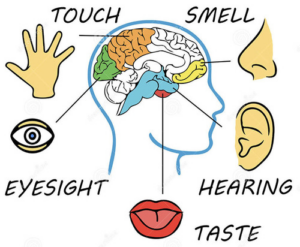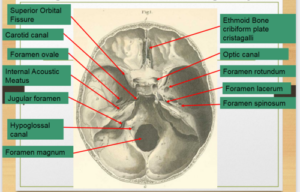Shadow Health Assignments
The Case of the Sweaty Salesman Michael
 This week’s focus is on Michael, a thirty-year-old salesman who spends much of his week traveling to visit clients.
This week’s focus is on Michael, a thirty-year-old salesman who spends much of his week traveling to visit clients.
During his routine physical examination, he casually mentions that he has been sweating more than usual and feels unusually warm in rooms that his family finds comfortable.
Initially, he thought it was just the seasonal change, but the problem persists even when he’s at home.
Michael also reports that he’s been losing weight despite eating more than usual, has a shortened attention span, and feels restless, although he is constantly tired. He struggles with sleep and has more frequent bowel movements, sometimes with diarrhea.

Struggling to meet your deadline?
Get your assignment on The Case of the Sweaty Salesman Michael done by certified MDs and PhDs in the USA. ORDER NOW!
Symptoms of Hyperthyroidism: A Detailed Overview
Upon examining Michael’s medical history, his doctor learns that he has lost 15 pounds since his last checkup. The doctor also asks about potential HIV risk, as these symptoms could sometimes be associated with HIV. However, Michael’s lifestyle and sexual history reveal that he is not at risk. His family history is significant, with his father having idiopathic thrombocytopenia, his mother suffering from rheumatoid arthritis, and his sister recently diagnosed with systemic lupus erythematosus, an autoimmune disorder. These family connections are important for understanding his risk for autoimmune diseases, such as Grave’s disease, a type of hyperthyroidism.
Diagnosing Grave’s Disease: Blood Tests and Physical Exam
The results of Michael’s physical exam reveal some concerning signs: tachycardia (increased heart rate), loud heart sounds, arrhythmia (irregular heartbeat), and slightly elevated blood pressure. His eyes appear enlarged and protruding, a sign of exophthalmos, a common symptom of Grave’s disease, and his hair is soft and thinning, with signs of alopecia (hair loss). Michael also exhibits palmar erythema (redness in the palms), which is common in thyroid disorders. Palpation of his neck reveals the presence of a goiter, which is an enlarged thyroid gland often seen in hyperthyroidism.
Blood tests show elevated levels of thyroid hormones (thyroxine and triiodothyronine), hypercalcemia (high calcium levels), and decreased lipid concentrations. These results are typical of hyperthyroidism and point toward Grave’s disease, which is diagnosed by the presence of thyroid-stimulating antibodies that bind to receptors on the thyroid gland, stimulating it to produce excessive thyroid hormones.
Understanding Hyperthyroidism: How Thyroid Imbalance Affects the Body
An imbalance in thyroid hormones can have widespread effects on the body because thyroid hormones regulate metabolism, heart rate, temperature, digestion, and even mood. When thyroid hormone levels are too high, as in hyperthyroidism, the body’s metabolism speeds up, leading to symptoms like increased sweating, weight loss, irritability, and tachycardia. These imbalances affect many systems, including the cardiovascular, digestive, and nervous systems, which explains Michael’s diverse symptoms. 
Nursing Care Plan for Hyperthyroidism: Key Considerations
The nursing care plan for hyperthyroidism would focus on monitoring Michael’s heart rate and blood pressure, addressing his anxiety and restlessness, and providing support for his dietary needs due to the weight loss. Nurses should also educate Michael on his condition, including the importance of follow-up care and monitoring thyroid hormone levels after treatment.
Thyroid Function Tests: A Guide for Nurses
Nurses need to be familiar with thyroid function tests, such as measuring thyroid hormone levels (T3 and T4) and checking for the presence of thyroid-stimulating antibodies, which are key in diagnosing Grave’s disease. These tests help determine the best course of treatment and monitor the effectiveness of treatment options.
Treatment Options for Hyperthyroidism: Medications, Surgery, and Radioactive Iodine
Michael was given several treatment options, including medications like propylthiouracil or methimazole, which reduce thyroid hormone production. However, after discussing the possible side effects of radioactive iodine therapy, especially its potential impact on reproductive health, Michael opted for surgical removal of the thyroid gland (thyroidectomy). This choice was made to avoid the potential risks of radioactive treatment, such as its possible effects on gamete development and reproductive health, particularly since Michael and his wife hope to have more children.
Postoperative Care After Thyroidectomy: Monitoring and Patient Education
After a successful thyroidectomy, Michael was placed on synthetic thyroid hormone replacement therapy to maintain normal thyroid hormone levels. Postoperative care for thyroidectomy patients includes calcium monitoring, as the surgery can damage the parathyroid glands, which regulate calcium levels. Nurses must educate patients about the signs of hypocalcemia (low calcium levels), including tingling in the fingers, muscle cramps, or tetany.
The Role of Nursing in Managing Side Effects of Thyroid Hormone Treatment
The role of nursing in managing side effects of thyroid hormone replacement therapy is crucial. Nurses need to monitor for symptoms of hormone imbalance, such as tachycardia, fatigue, or weight changes, and adjust the dosage of thyroid medication accordingly.
Collaborating with Endocrinologists: Nursing in the Diagnosis and Treatment of Thyroid Disorders
Nurses play an essential role in collaborating with endocrinologists to manage thyroid disorders. Nurses must monitor the patient’s response to medications, assess for side effects, and provide education on managing symptoms. Additionally, ongoing monitoring of thyroid hormone levels in the blood is crucial to ensure that the patient’s treatment plan is effective.
Managing Hyperthyroidism in Adults: Challenges and Nursing Strategies
Managing hyperthyroidism in adults presents unique challenges, especially when dealing with complex cases like Grave’s disease, which is autoimmune in nature. Nurses must stay informed about the latest treatment options, including radioactive iodine treatment and thyroidectomy, and help patients make informed decisions about their care. 
Hyperthyroidism and Reproductive Health: What Nurses Should Know
One important consideration in Michael’s case is his desire to have children. Radioactive iodine therapy, while effective for treating hyperthyroidism, can be contraindicated in patients who are planning to have children, as it can affect gamete development and fertility. Nurses must provide appropriate patient education and discuss reproductive health concerns before deciding on a treatment plan.
Thyroid Disease Nursing Interventions: What Nurses Need to Know
When treating patients with thyroid disorders, nurses need to be proactive in assessing symptoms, conducting regular thyroid function tests, and educating patients about the potential effects of their condition and treatments. Nursing interventions for thyroid disorders may include monitoring for changes in heart rate, providing emotional support, and ensuring that patients are compliant with their medications and follow-up appointments.
Thyroidectomy Nursing Care: Preoperative and Postoperative Considerations
For patients undergoing thyroidectomy, preoperative nursing care includes educating the patient about the surgery and potential risks, such as hypocalcemia and voice changes. Postoperative nursing care focuses on monitoring for complications such as bleeding, infection, and parathyroid damage, which can affect calcium levels.
The Link Between Autoimmune Diseases and Hyperthyroidism: Implications for Nursing Care
Michael’s family history suggests a genetic predisposition to autoimmune diseases, which can contribute to the development of autoimmune thyroid disease such as Grave’s disease. Understanding this connection helps nurses assess risk factors and provide appropriate patient education about managing autoimmune conditions.
Conclusion: Why Radioactive Iodine Treatment Was Ruled Out
Radioactive iodine treatment was ruled out for Michael because it can affect gamete development, posing risks for future reproductive health. Given his family planning goals, Michael chose surgery as the safest treatment option, alongside thyroid hormone replacement therapy to maintain normal thyroid function.
Through careful nursing assessment for hyperthyroidism, patient education, and collaboration with endocrinologists, Michael’s care was tailored to meet his medical needs and personal preferences.

Dont wait until the last minute.
Provide your requirements and let our native nursing writers deliver your assignments ASAP.